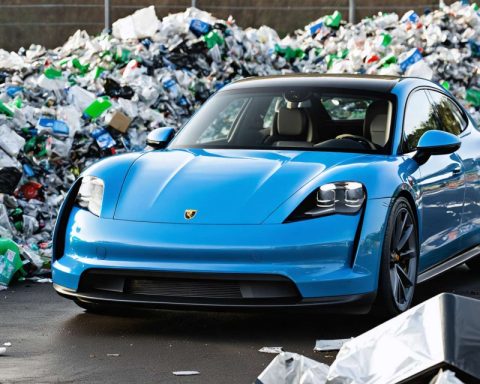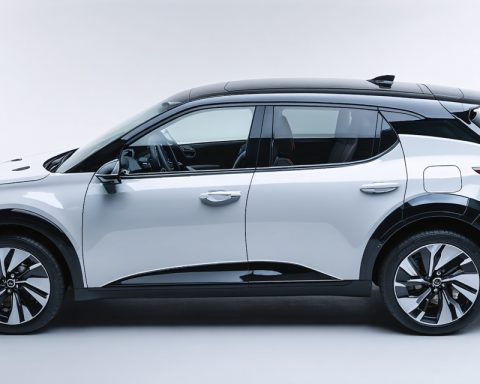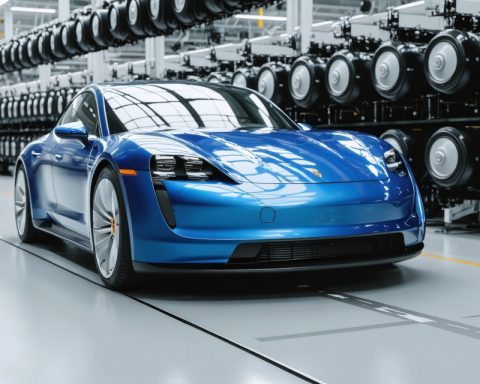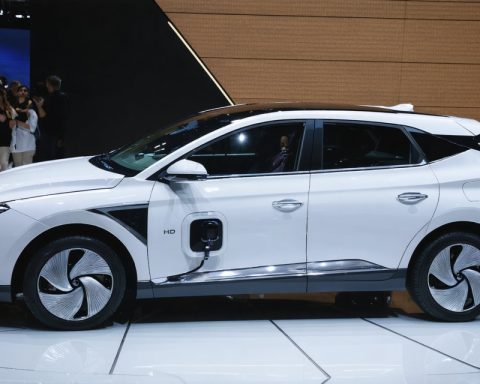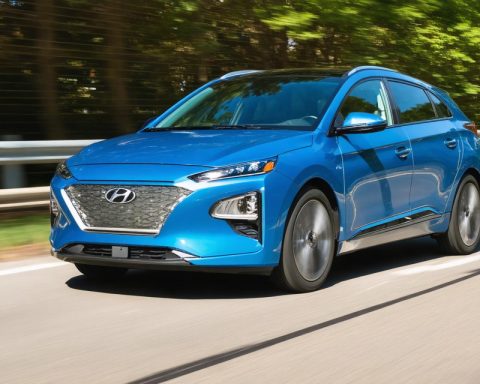- Tesla faces the risk of missing Q1 delivery targets, dropping expectations from 470,000 to 380,000 vehicles.
- An unexpected incident in Rome, where suspected arson destroyed vehicles, has raised concerns over Tesla’s public perception.
- Elon Musk’s political stances, including controversial comments, are fueling backlash against Tesla facilities globally.
- European sales struggle, notably with a 37% decline in France, contributing to a revised 2025 delivery forecast from 2.1 million to 1.9 million.
- Investors seek stability through consistent deliveries and a renewed focus on innovation rather than controversy.
- Tesla stands at a crossroads, needing to shift its narrative towards reliability and sustained growth.
The electric hum of anticipation around Tesla has hit a dissonant chord, leaving investors staring at a dashboard of flashing warning lights. Like an unexpected jolt from one of its electric powertrains, Tesla’s recent performance has shocked the market.
As the first-quarter numbers approach, Tesla grapples with the looming possibility of missing delivery targets by 90,000 cars. Expectations have sharply fallen from 470,000 to 380,000 vehicles. This isn’t a mere stumble but a missed step that echoes Tesla’s past troubles, particularly during the tumultuous early months of 2024 when stocks plummeted dramatically. Should this saga repeat with deliveries dipping below 350,000, history might echo with a sharp decline once more. However, a delivery tally over 360,000 units could offer a glimmer of hope, prepping investors to recalibrate expectations for the rest of 2025.
Yet, delivery woes are merely one curve in a winding road of challenges. Tesla finds itself embroiled in unexpected headlines: a fiery scene at a Rome dealership where nearly two dozen vehicles were reduced to charred frames amid suspicion of arson. Italian authorities hint at an anarchist backlash, while Elon Musk labels it terrorism—a sentiment resonating throughout the corridors of X. These incidents ignite more than the cars; they highlight growing discontent with Musk’s political provocations. His vocal stances—from supporting divisive figures to advocating NATO withdrawal—have fueled backlash against Tesla facilities from Berlin to California, pulling the company into an incendiary narrative far from smooth-driving automotive innovation.
Concurrent to these physical and reputational fires, the European market offers little solace. With sales nosediving by 37% in France, the landscape grows increasingly rocky. Wall Street projections have already downsized expectations from 2.1 million deliveries to an uncertain 1.9 million for 2025.
As dust settles over this tumultuous post-quarter landscape, what investors crave is not more fiery headlines but a return to solid ground. Stability is the new watchword—consistent delivery numbers, reduced downward revisions, and a quieter top-down approach. Tesla’s path forward requires more than a boost in demand; it needs a refurbishment of its narrative—one that highlights innovation and reliability over volatility and risk.
Tesla, as it stands, is at a crossroads—not only of market performance but of public perception. Can it steer back toward a narrative of stability and growth? That’s the question whispering beneath the roar of every Tesla engine right now.
Tesla’s Tumultuous Ride: What Lies Ahead for Investors and Market Dynamics
Navigating the Electric Storm: Insights into Tesla’s Current Challenges and Future Outlook
Tesla’s recent struggles have sent ripples through the automotive and investment communities, raising questions about its ability to navigate both market volatility and reputational challenges. Below, we explore deeper insights, expert opinions, and actionable recommendations for understanding and engaging with Tesla’s evolving situation.
Market Challenges and Industry Trends
1. Delivery Difficulties and Market Impact:
– Tesla’s anticipated shortfall in vehicle deliveries for the quarter (missing targets by up to 90,000 units) could significantly affect investor confidence. Consistently overestimating production capabilities—or under delving market demand—undermines trust.
– Increasing competition from companies like BYD, Rivian, and traditional automakers entering the EV space continues to challenge Tesla’s market dominance.
2. Global Dynamics Affecting Sales:
– Declining sales in key markets such as France (down 37%) point to potential saturation or competitive undercurrents. Factors such as shifting government incentives and increased local competition may contribute.
– Wall Street’s tempered expectations predict a downtrend—from 2.1 million to an estimated 1.9 million vehicles delivered in 2025.
3. Reputational Risks:
– Tesla’s association with Elon Musk’s controversial positions is impacting consumer sentiment, potentially dampening brand desirability across global markets.
Real-World Use Cases: Pivoting Toward Stability
1. Innovation and Reliability:
– Tesla must emphasize its advances in Autonomous Driving Technology and energy efficiency. Reinforcing its technological lead and consistent performance will be crucial to maintaining investor and consumer interest.
2. Localization and Adaptation:
– Adapting to regional markets with localized models and tailored marketing strategies can mitigate declining sales—emulating strategies seen successful in companies like Toyota or Volkswagen.
Predictions and Recommendations for Investors
1. Short-Term Volatility with Long-Term Potential:
– Despite current turbulence, Tesla’s persistent innovation in battery technology and charging infrastructure holds promise for long-term growth.
2. Diversifying Investments:
– Investors should weigh Tesla’s inevitable fluctuations with diversified portfolios, balancing high-risk, high-reward potential of Tesla investment with stable alternatives.
3. Monitoring Policy Changes:
– Keeping abreast of policy shifts—both supportive and restrictive—around the globe will offer foresight into market changes that could impact Tesla’s performance.
Pros and Cons Overview
Pros:
– Pioneer in electric vehicles with a strong brand and technological leadership.
– Expanding infrastructure and global production capabilities.
Cons:
– High volatility and reputation risks linked to Elon Musk’s public engagements.
– Growing competition and market saturation in key regions.
Actionable Tips
– For Investors: Regularly review and adapt investment strategies based on Tesla’s quarterly performance and broader industry trends.
– For Consumers: Consider timing purchases with Tesla’s model releases or updates to leverage potential value or incentives.
For deeper insights into Tesla and the automotive market, visit Tesla’s official site.
Conclusion
As Tesla maneuvers through a complex mix of market pressures and reputational challenges, its path forward will depend heavily on strategic clarity, steadfast innovation, and cultural adaptation. The road may be bumpy, but with the right navigational choices, Tesla can reclaim its narrative and stabilize its trajectory.





